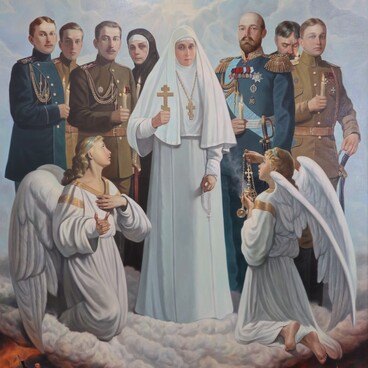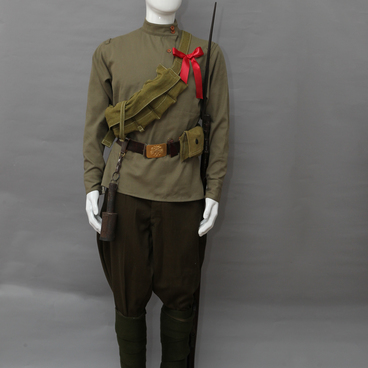A portable writing bureau was meant for traveling. When closed, this tiny box took up little room but when opened it served as a fully featured desk and enabled the traveller to work and write letters in comfortable conditions. Such portable writing bureaus were taken not only for long distance travels but also for military campaigns. Such boxes were usually locked by a key and had hidden compartments. Inside, there were also convenient compartments for writing tools, paper and an ink-pot as seen in the displayed exhibit.
Portable writing bureau
Creation period
Early 20th century
Dimensions
13,6x27,2x31,4 cm
13.6 х 27.2 х 31.4 cm
13.6 х 27.2 х 31.4 cm
Technique
Wood, brass, woollen cloth
2
Open in app#1
Portable writing bureau
#4
#5
Such objects were produced not only for convenience but were also a sign of its owner’s special status. Bureaus for nobility were made of fine wood, such as mahogany. They were decorated with inlaid shells or metal décor made of copper or brass.
The Napolnaya School Museum in the town of Alapaevsk exhibits this ancient bureau with the copy of a document. This is a page from a note book owned by Count Vladimir Gogenfelzen, one of the Royal prisoners in Alapaevsk. He presented his father, Grand Duke Pavel Alexandrovich, with this sheet.
#11
Open portable writing bureau
#6
It carries a blank verse poem:
Morning.
Although my alarm clock and Kalinin −
One by its sound, the other just by knocking −
are strongly trying to wake me up,
I still feel lazy to get up though I am well aware
That it’s five to eleven and
The tea kettle is boiling in the drawing room. I feel
So very lazy. The sun is shining
Through the window shutters, laughing
And drawing squares on the parquet floor.
It really seems that everything around
Has just been awakened as myself
And is fluttering in drowsy light-heartedness…
Although my alarm clock and Kalinin −
One by its sound, the other just by knocking −
are strongly trying to wake me up,
I still feel lazy to get up though I am well aware
That it’s five to eleven and
The tea kettle is boiling in the drawing room. I feel
So very lazy. The sun is shining
Through the window shutters, laughing
And drawing squares on the parquet floor.
It really seems that everything around
Has just been awakened as myself
And is fluttering in drowsy light-heartedness…
#7
Vladimir Gogenfelzen was born in Russia but spent his childhood in France. He was born from a morganatic marriage –i.e. between people of unequal social rank, which in the context of royalty prevents the passage of the husband’s titles and privileges to the wife and any children born of the marriage. Therefore he did not have the name of his father, Grand Duke Pavel Alexandrovich. As it was the tradition of the Romanov house, he was supposed to become a military officer. And Vladimir Gogenfelzen entered the Corps of Pages – a privileged educational institution, – and then served as a lieutenant of the Imperial Guards Hussar Regiment. Despite his military career, he took lessons of drawing and music, was fond of literature: read a lot and wrote pieces himself. In his adolescent years he was conferred the title of a duke and the surname Paley – which belonged to his grandmother.
#8
At the front he continued to write poems – love poems and works focused on war themes. He described the dedicated service of medical nurses and the deaths of his friends. The duke sent these texts home, inserting them in his letters.
In 1916 the first collection of his works was published, with sales profit going to charity. The publication included his poems about love, music, family, friends and war, which had been created in various years.
#9
After the October revolution, he was asked to renounce his father – a member of the Romanov dynasty – and regain his freedom but he refused. Vladimir Paley was exiled to Ekaterinburg and later appeared in Alapaevsk together with the other Royal family members and their entourage. In one of his letters he wrote: “Everything that I was interested in earlier: those magnificent ballets, those decadence paintings, that new music, – all that seems now vulgar and in bad taste. I am looking for truth, light and kindness…” Duke Vladimir Paley was killed on 18 July 1918. He was just a bit over 20 years of age.
#12
Sverdlovsk State Regional Ethnography Museum
read morehide
00:00
00:00
1x
Portable writing bureau
Creation period
Early 20th century
Dimensions
13,6x27,2x31,4 cm
13.6 х 27.2 х 31.4 cm
13.6 х 27.2 х 31.4 cm
Technique
Wood, brass, woollen cloth
2
Open in app
Share


